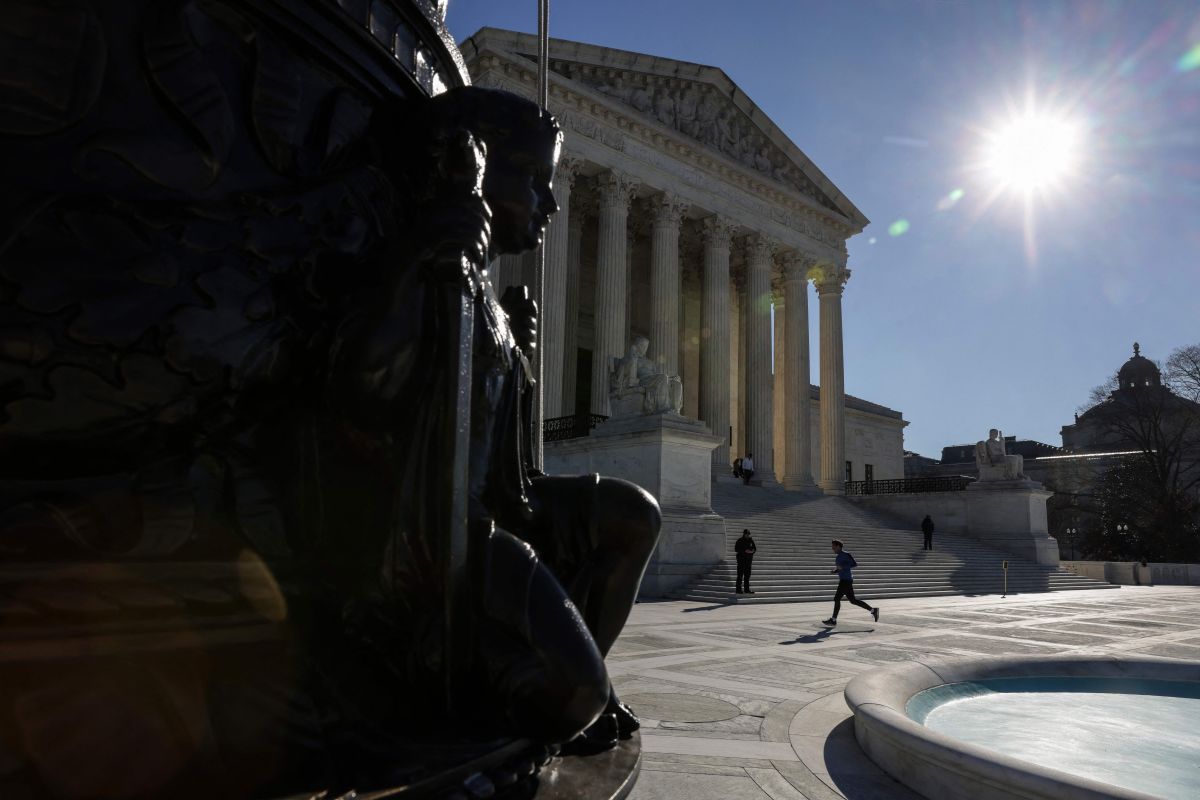WASHINGTON – The United States Supreme Court heard oral arguments on Tuesday in the Glacier v. Truckers Union case, where the Glacier Northwest cement company argued that a strike by its truckers caused the destruction of material, for which they are subject to be sued.
The merits of the case have to do with the way in which union disputes are resolved: according to the laws of the country, the preferred forum to determine if a strike occurs according to the law is the National Labor Relations Board (NLRB). , which is currently reviewing the case.
For the Truckers Union, this means they cannot be subject to a state lawsuit like the one Glacier Northwest filed after the strike. This was also understood by the Supreme Court of the state of Washington, where the company filed the lawsuit, which refused to hear the case.
The company is now asking the US Supreme Court to reverse the Washington court decision, allowing the truckers’ union to face a statewide lawsuit.
To do so, and to accept Glacier’s thesis as valid, the highest court in the country would be going against its own precedents, which stipulate that matters that have to do with the legality of a union action be left in the hands of the NLRB.
The specific action Glacier is protesting against was abandoning truckloads of cement that had not been delivered to customers, ultimately causing the contents to cool and become unusable.
The company argues that this amounts to destroying the product, something that is not protected under labor laws, so the right to strike would not prevent workers from being sued in state court.
The workers, for their part, explained that not only did they take the trucks back to the company at the time of the strike, but they also left them on, so that the material could not cool down until the engine was turned off.
Progressive Judge Ketanji Brown Jackson went so far as to compare the workers’ action to the outcome of a staff strike in a supermarket, explaining that employees could not be blamed for milk going bad when they left their job.
Attorney Carter Phillips, representing the US Chamber of Commerce, appeared to object to that classification and asked, in effect, that the court reverse the Washington court’s decision not to hear the case.
However, he also seemed to agree that abandoning a product that is going to go bad is not the same as actively causing the destruction of company material.
The lawyer representing the union, Darin Dalmart, assured that his clients did give the company a wide margin to recover the cement or deliver it by other means, and that, in fact, all strikes seek to cause economic damage to a company, therefore, accepting Glacier’s thesis would be equivalent to limiting the right to strike.
The workers, as long as they have taken measures to avoid the aggravated destruction of company material, are not responsible for perishable goods becoming useless, Dalmart assured.
The US government has taken an unconventional role in the case, accepting the arguments of both parties and proposing an intermediate solution, which would not imply the elimination of constitutional precedents.
According to the US administration’s characterization of the facts, the Washington Supreme Court should have agreed to hear the company’s claim, since at that time the NLRB had not yet taken action on the matter.
However, once the Labor Relations Board has decided to hear the case, that is the forum where it must decide whether the workers’ actions are protected under the labor laws.
By fully accepting Glacier’s thesis, the US Supreme Court would overturn the precedent of giving the NLRB priority to intercede in cases where the validity of a strike is in question – a precedent that allows workers across the country to be subject to the same labor standards.
